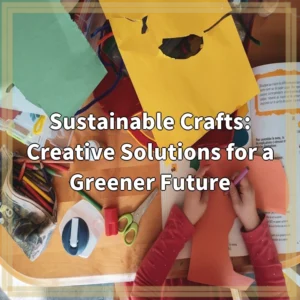What it is
Ancient texts hold an immeasurable wealth of knowledge and history, serving as invaluable cultural artifacts. Preserving these texts is not merely about maintaining physical copies; it is about safeguarding the wisdom and stories they contain for future generations. The sustainable preservation of ancient texts involves various techniques and approaches aimed at ensuring their longevity and accessibility.
Real-World Problems
Deterioration and Fragility
A significant challenge in the sustainable preservation of ancient texts is their inherent fragility and susceptibility to deterioration over time. The aging process, exposure to environmental factors such as humidity, temperature fluctuations, light, pests, and even human handling can all contribute to the deterioration of these texts.
High Costs and Limited Resources
Preserving ancient texts requires substantial financial resources and specialized expertise. The cost of acquiring and maintaining preservation equipment and facilities, hiring trained conservators, and implementing conservation protocols can be prohibitively high for many institutions and organizations. Limited funding options further compound the problem, making it challenging to allocate adequate resources for the preservation efforts.
Language and Translation Challenges
Ancient texts often exist in languages that are no longer widely spoken or understood. Translating, interpreting, and understanding these texts accurately pose significant linguistic and scholarly challenges. The need for experts well-versed in the relevant ancient languages adds complexity and raises concerns about the accurate interpretation and preservation of the texts’ original meaning.
Access and Digitalization
Ensuring access to ancient texts is essential for their preservation. However, many texts are housed within institutions that have limited public accessibility. Digitization efforts aim to increase access by creating digital copies of these texts, but challenges such as copyright restrictions, technological limitations, and the sheer volume of work required pose obstacles to comprehensive digitization initiatives.
Ethical Concerns
Preservation efforts must consider the ethical implications of handling ancient texts. Questions regarding appropriate conservation techniques, potential damage caused by restoration attempts, and ethical guidelines for accessing and using the texts arise. Balancing the need for preservation with respecting the cultural and historical significance of these texts is an ongoing challenge.

Solutions for Sustaining Ancient Texts
Preserving ancient texts requires proactive measures and innovative solutions to overcome the challenges discussed earlier. Here are some potential solutions:
Conservation and Restoration Techniques
Investing in research and development of conservation techniques can help mitigate deterioration and slow down the aging process of ancient texts. Experts in conservation can develop specialized methods for preserving fragile materials, mitigating environmental factors, and preventing damage from pests or handling.
Collaboration and Partnerships
Collaborative efforts between cultural institutions, scholars, and experts can pool resources, knowledge, and expertise. By working together, shared facilities, funding, and research can be utilized efficiently, enabling more comprehensive preservation efforts.
Digitalization and Accessibility
Digitizing ancient texts not only increases accessibility but also serves as a form of preservation. Creating digital copies allows for wider dissemination, remote access for scholars and enthusiasts, and reduces physical handling of fragile texts. Consistent efforts in digitization, combined with robust metadata and searchable archives, can enhance research opportunities.
Training and Education
Investing in specialized training programs and educational initiatives can help develop a pool of experts skilled in the conservation and interpretation of ancient texts. By fostering a new generation of knowledgeable professionals, the preservation efforts can be sustained in the long term.
Public Engagement and Awareness
Raising public awareness about the importance of preserving ancient texts is crucial for garnering support and resources. Engaging the community through public exhibitions, educational programs, and outreach initiatives can instill a sense of responsibility and connection to these cultural treasures.
Ethical Considerations and Guidelines
Developing ethical guidelines and best practices for the handling, conservation, and accessibility of ancient texts is essential. These guidelines can help ensure that preservation efforts are conducted with utmost care and respect for the cultural and historical significance of the texts.













